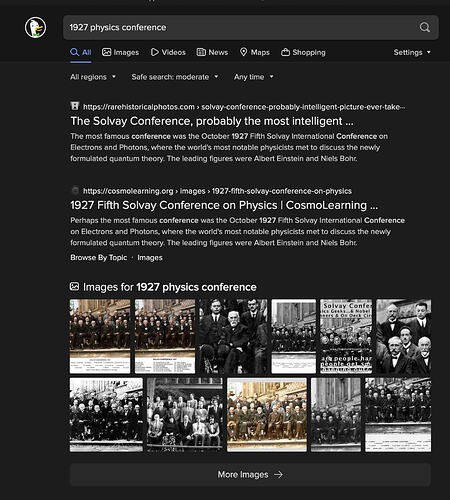I have a similar intuition about philosophy: no one part is all that hard and people should be able to learn it if they’d just actually try. Part of me thinks that. It’s something I’ve thought about before.
did they get stuck on problems that are so hard and so individualized that no one could figure out how to solve them
Being stuck on individualized problems that require a bunch of introspection is one of the reasons that people stop wanting to learn it or evade. I don’t know how to cleanly separate the causes between evasion/dishonesty, choosing not to, or other causes.
Lots of evasion is because they got stuck in some way first. Why evade if it’s going well? Or maybe they evaded something small (and maybe didn’t even mention it in any way to me), then got stuck, then did a bunch more evasion that was more visible. It’s hard to know.
With philosophy, a fair amount of people start off looking kinda promising and make some fairly rapid progress. They learn some parts of philosophy that they don’t get stuck on. But then once they find a hard part (for them) and get stuck, they stay stuck and start becoming dishonest/evasive/etc. It’s common that people never get past the first major difficulty.
One issue with philosophy is I think the current educational materials are less complete than other fields. That is, even if you learned all the stuff I’ve written down, I doubt you’d be able to do what I do. I think I’d need to figure out some more stuff that I do to write down (or you’d have to figure out some stuff yourself). It’s hard to guess how much stuff I’m doing that I haven’t recognized as important to teach and written about. That seems like a significant concern if you want to be a physics “genius” like Feynman or Einstein – no doubt they were doing some things that are not explained in any textbooks or taught in schools – but it seems like you can at least reach a functional, effective level of physics skill based on stuff that is currently taught. It’s unclear how much and which parts of what I do could be omitted and still reach a highly effective level of philosophy skill.
Incompleteness of educational materials is an issue in all fields, but not as big of an issue.
Also, other fields have more semi-redundant material which helps people get unstuck. E.g. if you’re having trouble with one math textbook, you can try a different one that explains the same concept in a similar but different way.
With philosophy, there is sometimes only a small number of main educational sources for an idea. Some philosophy concepts only have a single source. Some of what Ayn Rand or I wrote is not available anywhere else. (This is one reason I write about the same topic multiple times. I’m trying to give more robust options and explanations for it instead of just one.)
Also, with philosophy it’s sometimes important to use educational materials from outside of your field. That is less of an issue with physics – you can kinda just stick to math and physics stuff (and maybe programming). (This assumes you already have widespread early education stuff like learning to read and write.) With philosophy, it could be important to learn some stuff from grammar educational materials, evolution, math, logic, trees, some programming, whatever category people put Goldratt in, etc. And learning some history or economics seems useful even if not required. Part of what’s going on here is the current understanding of the field of philosophy, and boundaries put around it, is wrong. Or it could be called “traditional philosophy” or something. It’s a meaningful bundle of stuff that I wouldn’t want to have no term for. But if your goal is to seek the truth and get really good at critical thinking, learning, judging ideas, etc., then the boundaries of your field are pretty different than traditional/academic philosophy and include parts of a bunch of things that are considered their own autonomous field.
There are many examples of people failing/quitting at philosophy in discussion archives. A lot of that is in emails. Here’s one:

Curiosity – Firebench Debate
I had a debate with Firebench on the Fallible Ideas Learning Basecamp. You can read an archive at: curi & Firebench Debate (part 2) We agreed to debate to a conclusion (either mutual agreement or
Here’s another:

Curiosity – Critical Rationalism Epistemology Explanations
I discussed epistemology in a recent email: I really enjoyed David Deutsch's explanation of Popper's epistemology and since reading Fabric of Reality I've read quite a bit of Popper. I
This was my reply to a new poster who responded:
Thanks Elliot for the excellent and thoughtful feedback. I’ll try to come up with a new version that improves the problems of the existing version.
I joined the other group. I hope to be an active participant.
He never followed up on this epistemology stuff. He posted in some other threads then quit. He is now a CritRat leader with a blog who hates me, is involved in the harassment campaign and, according to a source, has broken libel, slander, or defamation laws regarding me. In some sense, he wasn’t uninterested. He blogs about epistemology now but wouldn’t actually engage in discussion about it. Maybe he didn’t like being challenged or corrected, and thought it would be easy to fix his ideas to take into account the points I made, but then he wasn’t able to do it when he tried – maybe he got stuck and found it hard because his goal was just to make superficial changes. Maybe he just wants to posture as smart and social climb. Or maybe something else. It’s hard to know. After not posting for months, I recall he later denied that he’d quit (IIRC I brought it up and pinged him) and he seemed offended that I didn’t regard him as a current, active, involved philosopher … but after that he still didn’t follow up and actually continue the initial discussion of epistemology that he’d praised.
Anyway, I think how and why people get stuck is hard, subtle, nuanced, and there’s more to know than “evasion”. Even if it is evasion at one level of explanation/abstraction, it could still be studied on other levels, e.g. one could look at detailed types and causes of evasion.
Also, @ingracke has a lot of experiencing doing math tutoring (high school level or lower), and has some experience with how/why people get stuck re math. One result is she knows a lot of common errors, gaps in understanding, etc., and how to check for them. And she has talked to people who are, allegedly, really good at math, have advanced credentials, etc., and found that some of them are actually pretty bad at math, don’t understand basic stuff, etc. One thing that happens with math education is people in university get some fragile knowledge to be able to do certain calculations, but they never actually have a good conceptual understanding of math. I think it’s the same with physicists. I think you’re overestimating the understanding of many of your peers and professors, and possibly yourself. Or in other words, I think the failure rate in your fields is a lot higher than you think, if defined in a reasonable way. You can be bad at physics and get a job, do some bad work, get grad students to do some work for you and take credit, do a bunch of social climbing and office politics, etc. People do that. I’d count that as failure but not everyone would since it meets some criteria of success like getting a desirable, competitive job. (The risk of failing like that, and not really knowing you’re a failure (though maybe many of them know more than zero about what they are, like Guy Francon in The Fountainhead did), is one of the risks of not knowing enough philosophy. It’s an example of a major systemic problem in a field that members of the field broadly don’t recognize and talk about.)
Feynman wrote about fragile knowledge of physics students in Brazil: Richard Feynman on education in Brazil | Rob’s Posts
I think you’d be disturbed by how much similar issues apply in the U.S., Europe, etc. It can be hard to find out without knowing the right ways to poke people (e.g. questions to ask), because they try to hide their ignorance, inability, etc. And most people won’t just answer questions from most other people in most contexts. They don’t do Paths Forward and they try to limit and control what they say that might be wrong, embarrassing, etc.
Related is Feyman’s experience with math textbooks in California.
Broadly, in conversations about everything, most people constantly pretend to understand more than they do. People misunderstand each other all the time and they both hide the issues, gloss them over, and act like everything is going well (a lot of this is automatized, so they don’t consciously know they’re doing lots of it). I think most people are fooled most of the time. It’s similar to reactions I get to my articles: people say they like it and think to themselves that they understood it OK, but they don’t understand it well. They don’t know what understanding it well would be like or what they’re missing, so they don’t recognize themselves as missing it. That happens all the time. I challenge and question my fans a lot more than other creators, but I still ignore it most of the time even when I see signs that people are being dishonest. People often take it at face value when someone says they liked your article and learned a lot, and maybe say a few more things that prima facie appear to show some understanding.
